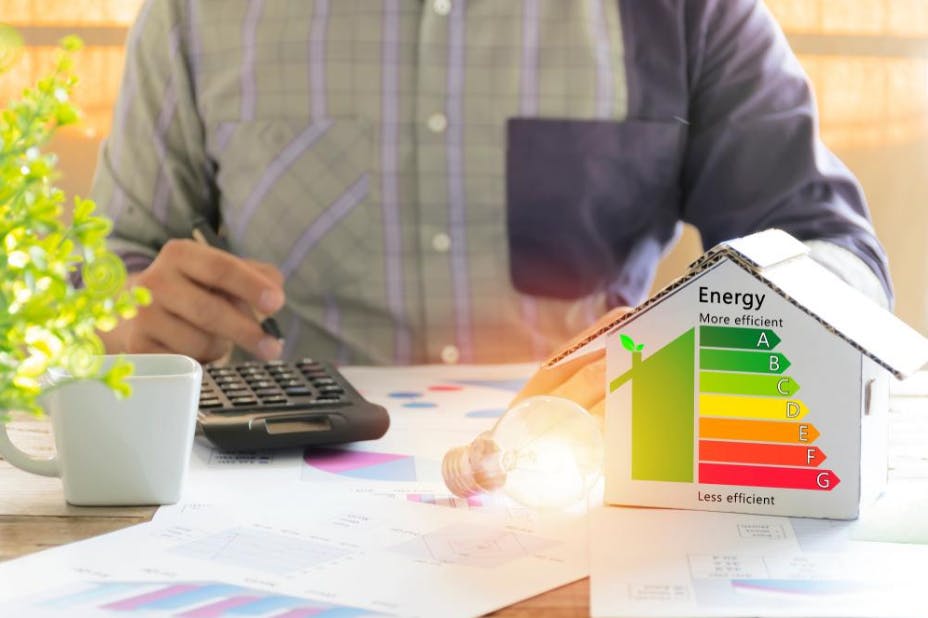Pacific Northwest weather can be extreme. “Water intrusion” is a phrase uttered often by homeowners when facing leaks and damp conditions following heavy rains. Strong winds appear to find the thinnest of gaps in windows and doors that produce temperature-altering drafts.
Yes, we know about leaks and loss here in the PNW!
Heating and cooling can take up about 35% of the energy used in a home. So, paying attention to energy usage can be your biggest contribution to climate change.
Approximately a quarter of a home’s heat loss seeps through windows. Addressing temperature swings in a home can go a long way toward lowering energy consumption and live a more sustainable lifestyle.
Rather than tackle issues in the middle of a weather event, savvy owners can be proactive by reviewing the home with an energy expert and following up with actions such as switching to a smart thermostat or weatherizing the home.
A home energy audit is an evaluation of the structure’s energy consumption and can typically provide a trove of information:
- How much energy the home uses in a year;
- How much energy the home would use in a year compared to a new home built to code;
- Greenhouse gas emissions that will be created by the home in a year;
- Energy and greenhouse gas intensity of the home (how much energy or greenhouse gases the home uses by square foot, which is useful for comparing the comparative efficiency of homes of different sizes); and,
- Info about how energy is used in a home (how much for space heating, water heating, lighting and appliances).
The true benefit of an audit is to identify issues, offer homeowners expert analysis and deliver options to cut a home’s energy use. Like an annual physical, the audit highlights issues within the body of the house and prescribes a remedy.
An audit conducted by a reputable firm can take 2-6 hours and cost $100-$600, depending on the size of the home and number of buildings included in the review. Some firms will also conduct an audit on new construction homes – even before they are built. Be wary of any companies that offer “free” energy audits and check their record through the Better Business Bureau.
Auditors should have experience in increasing the overall energy efficiency of a home. They will be able to offer suggestions on renovations or repairs that can help conserve energy. Look for someone who is a member of the Association of Energy Engineers to find a qualified expert and ask if they would also check for “energy hogs,” such as printers, always-on electronics or roof heating coils left on.
Efficiencies can be found across the home, from light bulbs, smart thermostats, Energy Star appliances and weather-proofing. It’s also an opportunity to ask questions of the auditor: Should I do laundry during the day or night? or When is the best time to charge an electric vehicle?
Anywhere energy is used, savings can be found.
In addition, homeowners can continuously check their consumption with an energy monitoring system. Want to know why your electric bill is high? A monitoring system can tell you as it’s happening.
Many state and local governments offer tax credits or other incentives to improve a home’s energy consumption and some agencies require an energy audit to qualify for the program. Seattle, for example, has a weatherization program called HomeWise, and Puget Sound Energy customers may take advantage of a series of rebates.
The bottom line is that homeowners can save on their energy bottom line.
—–
Rise, a leading online authority in sustainable home improvement, was a valuable resource for this blog post.




